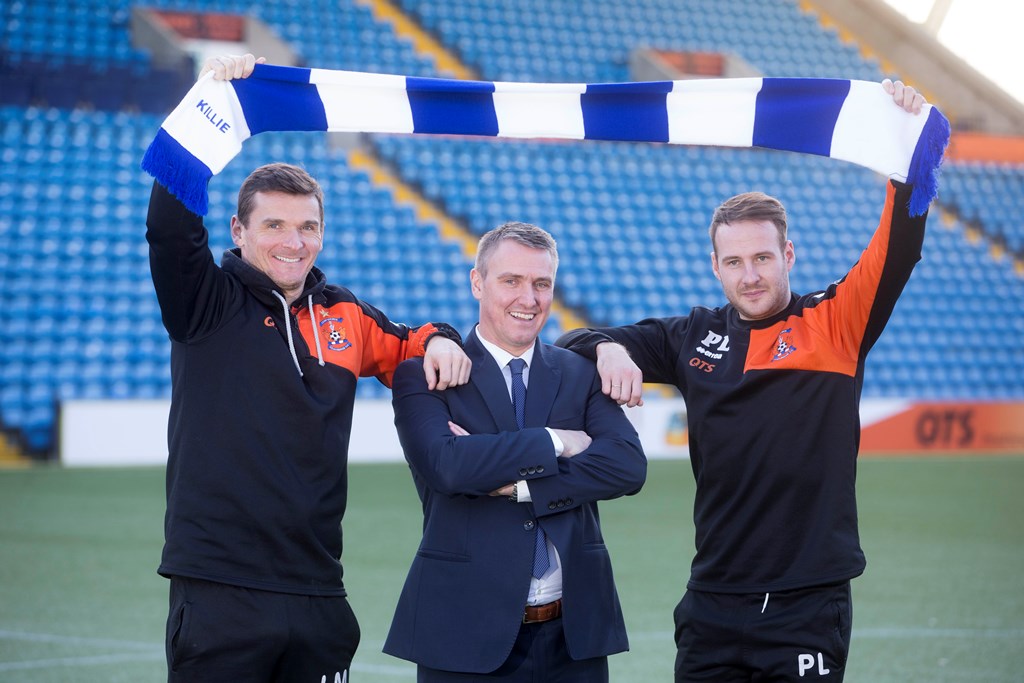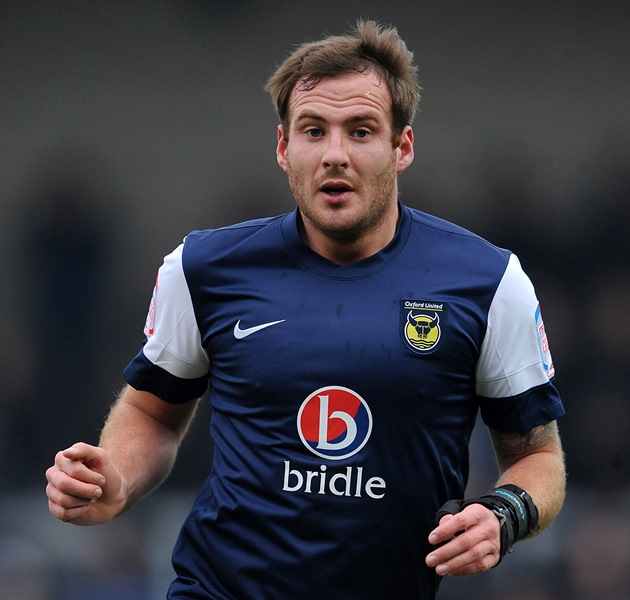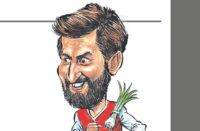Peter Leven is giving a history lesson on the siege of Brest, the Belarusian city he now calls home.
“The Fortress up there,” says the former Oxford, Chesterfield and MK Dons midfielder, “that's a fascinating place. It was given Hero status from the Soviet Union – one of only 12 places in the world.
“It was the first place the Nazis attacked in World War II. The city got no warning but they held out for about two weeks. They were still fighting when the Germans reached Moscow. It's a real symbol of pride.”
That isn't the only thing Leven has learned in the nine months since he left his family behind in Newcastle to coach the B-team at Dynamo Brest. There's Russian on Mondays. Spanish on Thursdays. “Some days, my head's exploding with the amount of information,” admits the 35-year-old.
“I can read Russian, but the alphabet is crazy. The symbol for the letter ‘z' is a number 3! It is hard, I can't lie about that. But I understand more than I can speak and I know the basic football terms, so I'm getting there.”
It is four years since Leven retired from the professional game and embarked on the bizarrest of coaching adventures.
Initially, his path was humdrum. Qualifications, youth coaching, a stint at Kilmarnock as assistant to the former Birmingham City boss Lee Clark.
Then, after losing his job at Killy, Leven read Another Way of Winning, the biography of Pep Guardiola penned by Spanish journalist Guillem Balague.
“In Pep's book, he said the best thing any coach can do is learn a foreign language and go abroad,” explains Leven, who won four caps for Scotland Under-21s and made over 250 EFL appearances before succumbing to a long-term knee injury.
“That stuck. All I'd ever been was an assistant manager at Kilmarnock, and there were so many people looking for jobs. I was average – I needed something on my CV that stood out.”

Leven spoke to his agent about going overseas. “I was thinking Spain, Germany, somewhere like that,” he laughs.
“But my agent, Christian, works with a Ukrainian company and they had links to Brest. He said to me ‘There's a job available – go over there for a year, learn the language, and work your way up'.
“I came over to visit, looked around. I was like ‘Hmmm – is this really the right thing to do?' But I spoke to the family and they were really supportive. My wife said ‘Listen, give it a go – and come back once or twice a month if you can'.
“I thought ‘Why not? If I don't like it, I can always come back'. I'd rather go for it than sit in my house waiting for a job that might never come.”
From the outset, Leven made a conscious decision to embrace the culture of Belarus and temper any expectations.
“We're lazy in Britain,” explains Leven, who arrived in March. “We expect everyone to speak English. I think that's why so many people get homesick. They get somewhere and think ‘This is impossible, nobody speaks my language'. But you're in their country! Why should they?
“It's been interesting learning a new way of life. How laid-back the Belarusians are about certain issues. How strict they are about others.
“They can come across as very arrogant but it's just their demeanour. Their faces are always in screensaver mode.
“You say ‘Good morning' and they're like ‘Mmm'. But once you get to know them, they're very friendly people.
“Luckily, my translator warned me first. He said ‘Peter. Don't take any offence – we're just very dry-faced and straight'. You try to crack jokes but nobody understands.
“It's very cheap, it's very clean. There's no crime. I just wish it was in the EU because the border is a nightmare.
“There's only one airport in Belarus. That's Minsk, which is four hours away, and doesn't have direct flights to Newcastle.
“I fly from Warsaw but to get there I have to leave Belarus and go through border control. Then, when you get into Poland, there's another border control. It can be three or four hours just clearing those. Then it's a four-hour drive to the airport. Last month, we just met up in Warsaw!”

On the pitch, too, Leven has learned quickly. Promoted from his job with the reserves, he now assists manager Marcel Licka with a first team squad that has just set a club-record of six successive wins and played in Europa League qualifying.
“It's all gone a little bit quicker than I expected, but it's been great,” he says. “The manager, Marcel, speaks good English.
“In fact, he speaks Russian, French, Spanish, English and Polish. Probably a few others. It makes me so jealous to watch. He's talking to players, switching from one language to the other.
“Sure, the professionalism could be a little bit better. Nobody in this league has the finances of big clubs back home.
“But it's stronger than you'd imagine, and I think the best clubs – ourselves, Bate Borisov, Dynamo Minsk – could hold our own in the Championship. This is a club on the up and I don't think it'll be long before people know about Brest.”
Will they also know about Leven?
“I do have ambitions,” he said. “I do aim high. Right now, I'm happy here. In the long-term, the Premier League is where I want to be.
“I was 17 when I injured my knee at Rangers and a specialist told me to retire. I played on for 13 years but I was never the same.
“People always say ‘You could have played a lot higher', but I don't think they realise the injury was always there, holding me back.
“I think that's why I've got extra motivation as a coach. I've got that burning desire to reach the top that I was denied as a player.
“If that means another job abroad, great. I'd advise any young coach to go abroad and learn.
“But sooner or later, I do want to come home. I think my wife will get sick of Warsaw eventually!”
CHRIS DUNLAVY

















